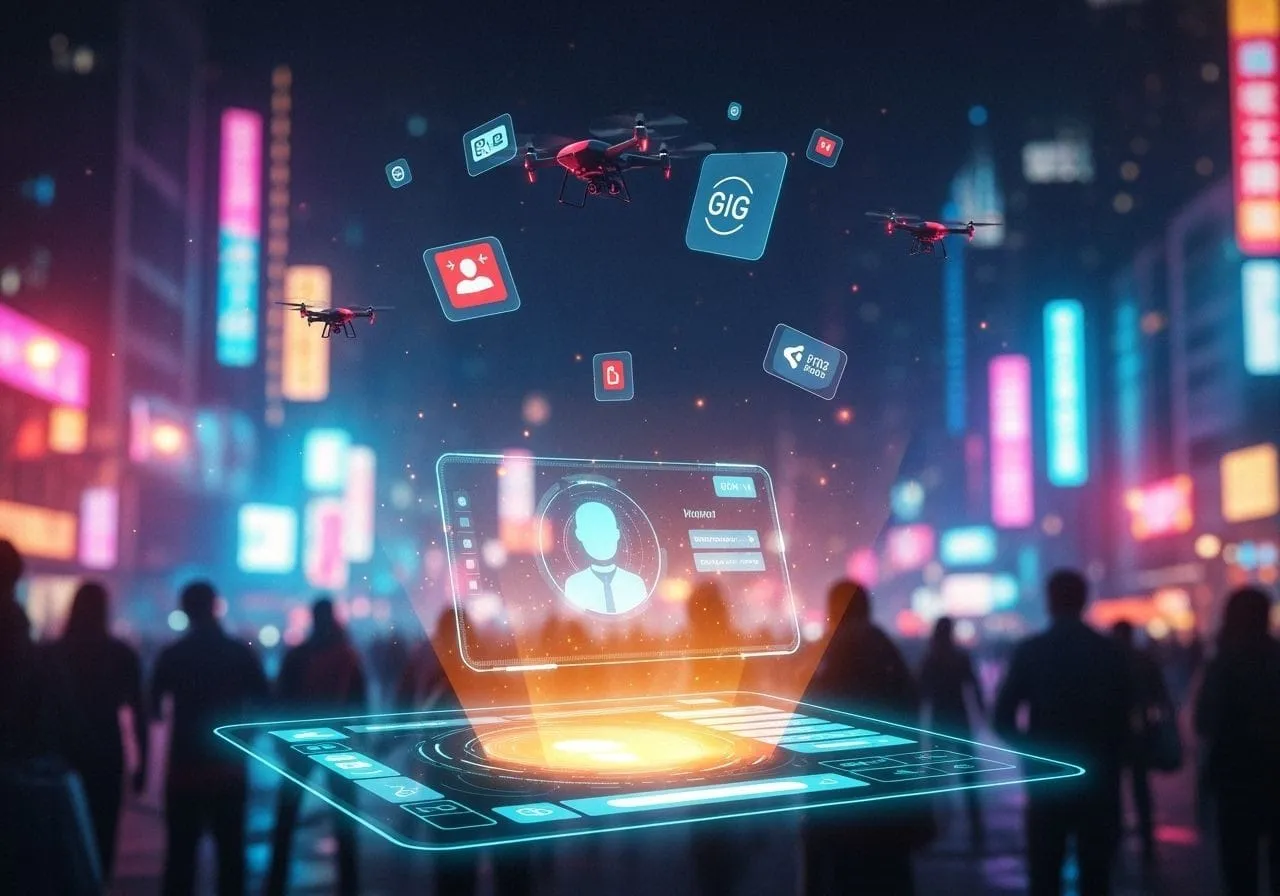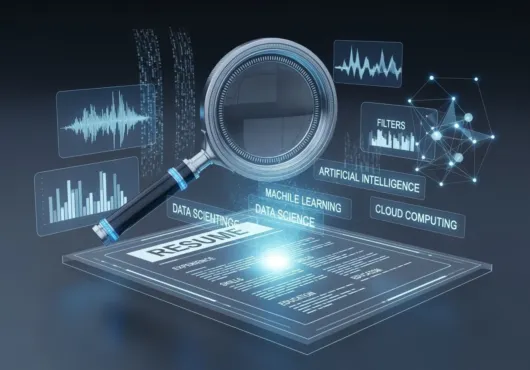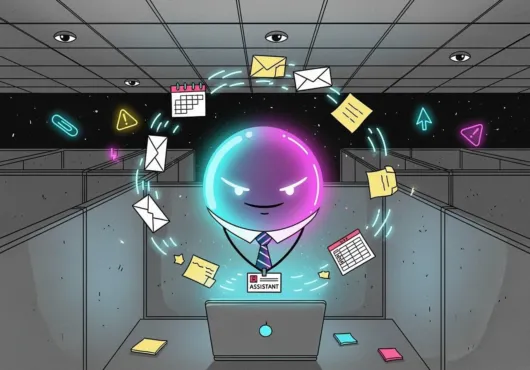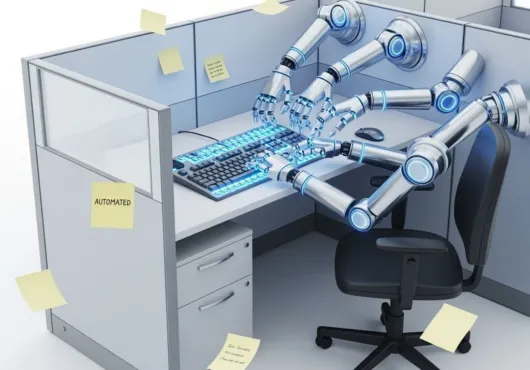The gig economy was sold as the future of work—freedom, flexibility, the chance to be your own boss, and work when you want. But, like every other shiny new tech trend, AI has found a way to turn that dream into a trap. It’s not the utopia we were promised—it’s a digital prison, one built on data, algorithms, and unpredictable paychecks.
Stop Drinking the AI Kool-Aid. Here’s Why You Should Be Worried.
Get the Full PictureAI didn’t make the gig economy better
Take ridesharing apps—we were told they’d allow drivers to set their own hours and control their own income. But AI-powered pricing models like surge pricing mean workers are at the mercy of algorithmic whims. The surge? It’s an illusion of control. You don’t get to decide when it’s “busy enough” to make good money—the algorithm does. And when you’re fighting for pennies on a 3 a.m. Tuesday morning ride, there’s nothing liberating about that.
Then there’s the food delivery gig: AI-driven platforms like UberEats and DoorDash promise “flexible hours” for drivers—again, another sweet pitch. But what’s really happening behind the scenes? AI is dictating how much you get paid per delivery, how long you wait between gigs, and what type of orders you get to pick up. Want a bigger tip? Too bad. Want to work during peak hours? Hope the algorithm lets you in. Your entire paycheck depends on what the machine says.
Freelance?
And don’t even get me started on freelance marketplaces: AI has commodified human labor into an endless auction. Sure, you get to set your price, but the system funnels you into a race to the bottom. With AI managing job bids, what used to be a discussion about skill level is now a bidding war on who’ll work for less. Welcome to a world where algorithmic pricing controls your value, and the client doesn’t care if you’re starving—only if you can deliver at the lowest price.
But the real kicker is the AI-powered surveillance on workers: those glowing ratings that dictate whether or not you get jobs, the system that monitors your every move, and the evaluation metrics that punish you for things out of your control. In the gig economy, AI has turned every task into a checklist of perfection, and if you slip up? You’re penalized with lower ratings and fewer opportunities. A bad review from one frustrated customer can cost you an entire day of work.
AI Is Not Your Friend. It’s Your Boss.
What we’re seeing is AI creating a new underclass of workers—people who are technically their own bosses but are still bound by invisible chains of algorithms, data, and ratings. The gig economy is fueled by AI—and it’s siphoning away autonomy, replacing it with a digital overseer who controls everything about your job.
We were promised freedom. What we got was data-driven control.
And here’s the thing: AI in the gig economy doesn’t care about you. It doesn’t care about your well-being or your work-life balance. It doesn’t care if you’re running on fumes. It cares about one thing: maximizing profit. If you’re not part of the machine’s perfect little model, it’ll chew you up and spit you out.
The Gig Economy’s AI Problem Isn’t Just About Pay—It’s About Power
The gig economy wasn’t just supposed to make us more productive—it was supposed to give us more freedom. But instead, AI has quietly turned us all into cogs in a well-oiled, algorithm-driven machine. We are commodities, data points to be exploited for the company’s benefit. The tools meant to set us free have instead turned into tools of control, and we’re expected to just be grateful for the scraps they toss our way.
So, the next time you think about signing up for another gig economy app, ask yourself: Are you signing up for freedom, or are you signing up to become just another digitally-controlled worker bee?
Conclusion: The Gig Economy’s Big AI Lie
AI isn’t helping the gig economy—it’s reinventing exploitation. It’s no longer about freedom or flexibility. It’s about putting workers into a system where they work harder for less, all while being tracked, rated, and manipulated by algorithms. So the real question is: when did convenience become the ultimate lie, and when did we stop questioning the systems that keep us working for nothing?
AI in the gig economy isn’t just a tool—it’s a power structure. And if we don’t start questioning it, the future of work won’t be just gig-based. It’ll be algorithm-based, and we’ll all be stuck in the grind.
Ready to Challenge What You Think You Know About AI? Let’s Break It Down.
Break It Down Now


